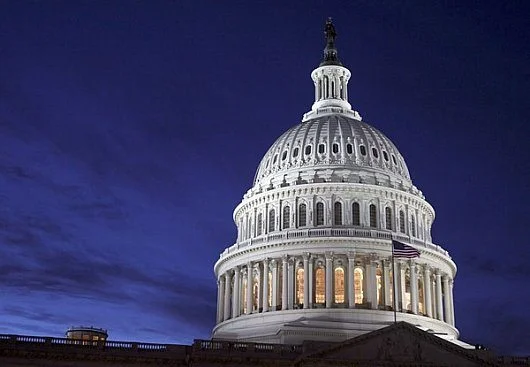Strong Jobs Data Means More Inflation, No Interest Rate Cuts
The Job numbers show the economy is not slowing. With more inflation ahead, the Fed will not cut interest rates this year.
The U.S. economy added a whopping 303,000 jobs in March beating economists’ expectations of about 200,000 jobs. The unemployment rate dipped to 3.8%. This news coupled with the rising inflation numbers mean more inflation ahead and no interest rate cuts this year.
As I noted in this space last December, again last February, and again last month, the Federal Reserve will not cut interest rates at all this year. And there is a strong possibility that the Fed may even raise interest rates once or even twice before the end of the year.
The reason is simple: the inflation problem is still here and worsening. The data since last December indicates the inflation rate is increasing no matter what inflation gauge the Fed looks at.
The Fed likes the Personal Consumption Expenditure (PCE). They want this number to fall to 2%. The PCE is currently 2.5% with the core PCE at 2.8%. The Fed believes the PCE is falling and will continue to fall so that they can begin cutting interest rates later this year.
Based on the job numbers and the current wage inflation, which will not happen.
From the consumers’ standpoint, the Consumer Price Index (CPI) is a better measure of inflation. That number is 3.4% and will rise in the months ahead, mostly because energy prices are rising rapidly. Crude oil prices have reached $90 per barrel. Already we have seen gas prices jump up to a national average of $3.58. That’s up more than 20 cents from last month.
The core CPI is about 4%.
The Fed assumed the economy would slow down when they stopped raising interest rates last September. That was a mistake. As I noted in this space back then, the pause in raising interest rates will allow inflation to linger leading to consumer inflation psychology. It turns out it didn’t just linger, but rather increased.
The most recent jobs number indicates that the economy may not be slowing as much as predicted. The economy grew at a 5% rate in the third quarter of last year. The growth rate slowed to 3.4% in the fourth quarter. Economists were forecasting growth would slow to 2% or less in the first quarter of 2024.
The first estimate of GDP growth will be released at the end of April. Economists are now forecasting that the growth rate may be closer to 3%. That too will add to the inflation.
The other problem that will add upward pressure on prices is the current wage inflation. Wages are currently growing at a 4.6% rate. Since productivity is in the 2% range, the higher wages will result in increased labor costs for business, which will also push consumer prices higher.
With the CPI increasing and with continued wage inflation, the Fed will have to focus on the price stability issue. That means no interest rate cuts this year and there is the possibility of a rate hike in Fall if the inflation problem worsens.
The Fed cannot afford any more mistakes with Monetary Policy. Their biggest mistake was made from January 2021 to June 2022. With the economy growing at a 6% rate and the Federal Government incurring huge multi-trillion annual spending deficits, the Fed did nothing.
Interest rates were kept near zero. The Money Supply vastly increased as the Fed purchased $120 billion of government bonds monthly. They justified their incorrect actions by saying that the inflation problem was transitory. Inflation is never transitory.
That inaction led to the high inflation we have experienced since January 2021.
The second Fed blunder was last September when they paused the interest rate hikes. This was obviously too soon. Had they increased the Federal Funds Rate up to 6% instead of leaving it at 5.3%, the recent inflation increase may have been avoided.
Now the Fed must concentrate on completely eliminating the inflation problem. It is obvious from the latest jobs numbers that the economy is not headed for a soft landing.
Inflation is a cancer and must be treated early and aggressively. The Fed didn’t act early. It is time for the Fed to act aggressively.
Agree/Disagree with the author(s)? Let them know in the comments below and be heard by 10’s of thousands of CDN readers each day!




